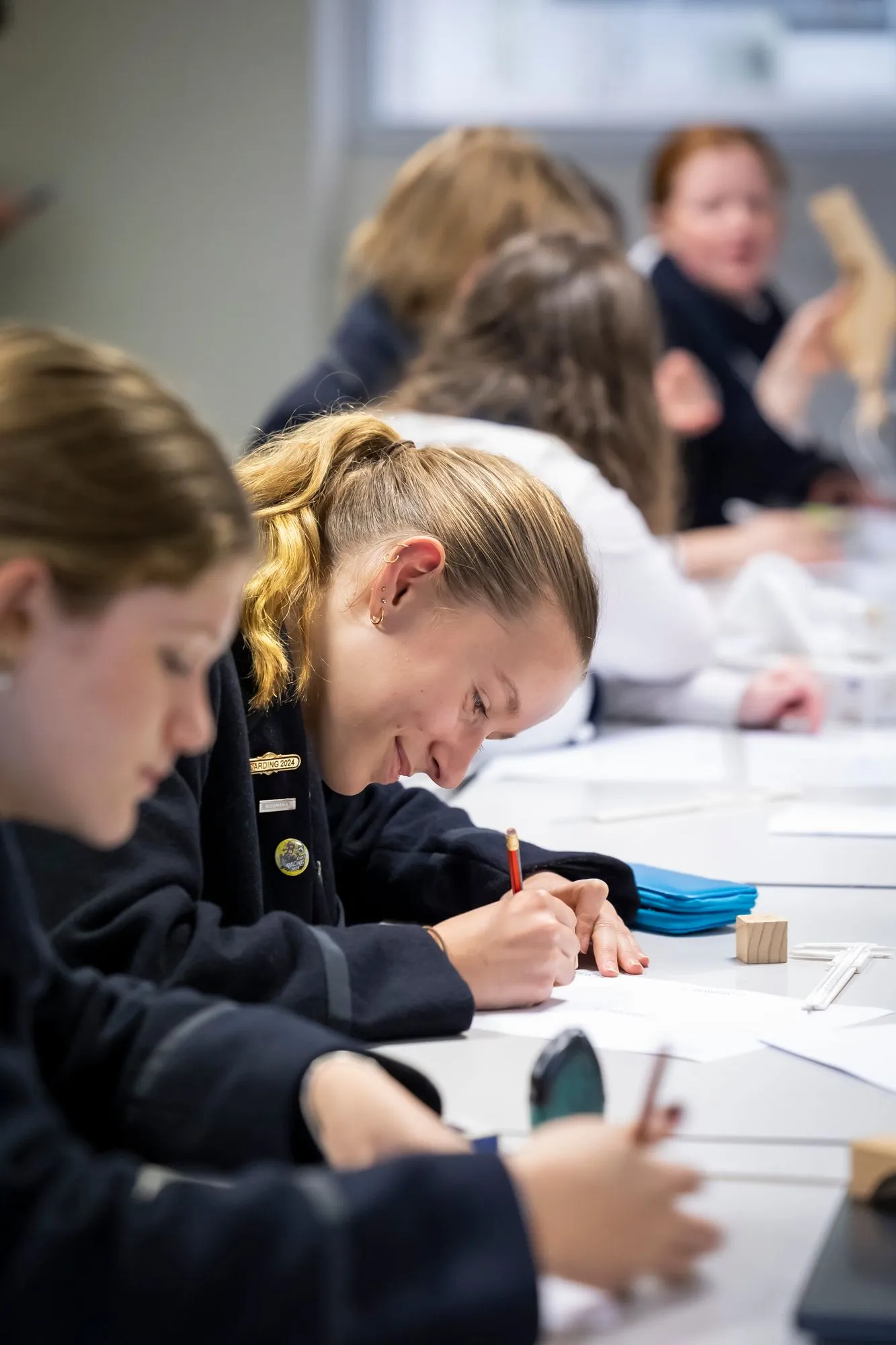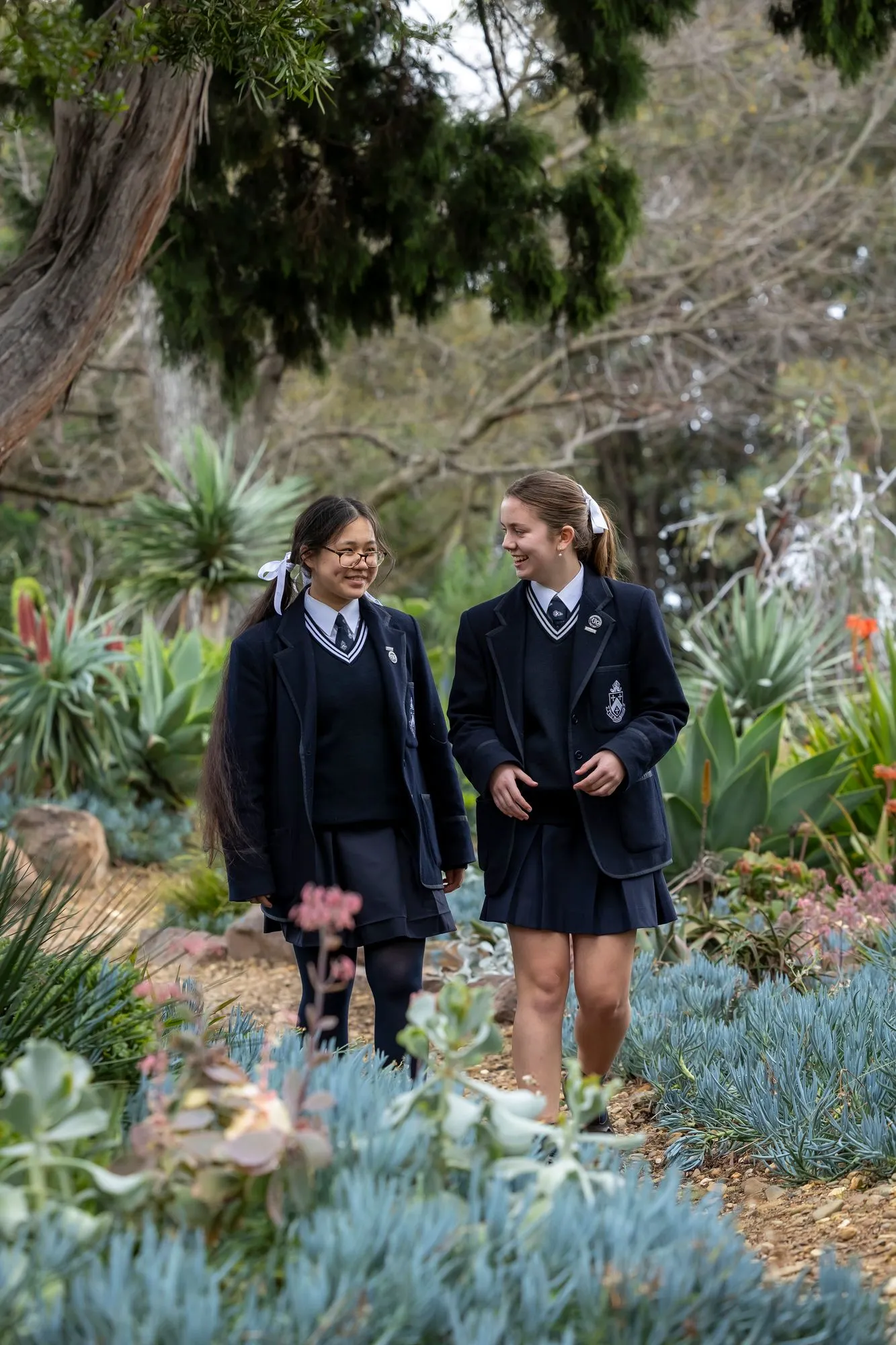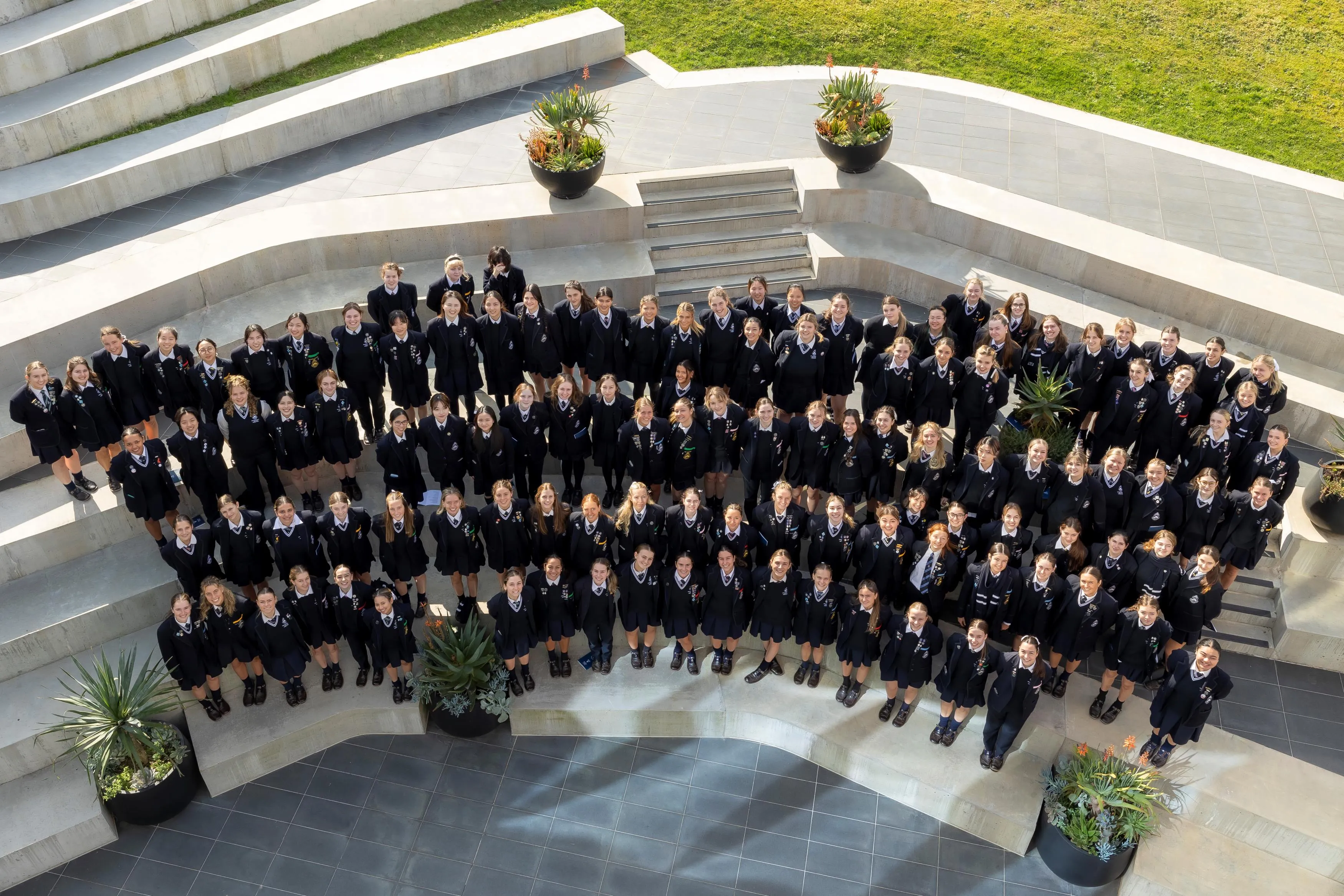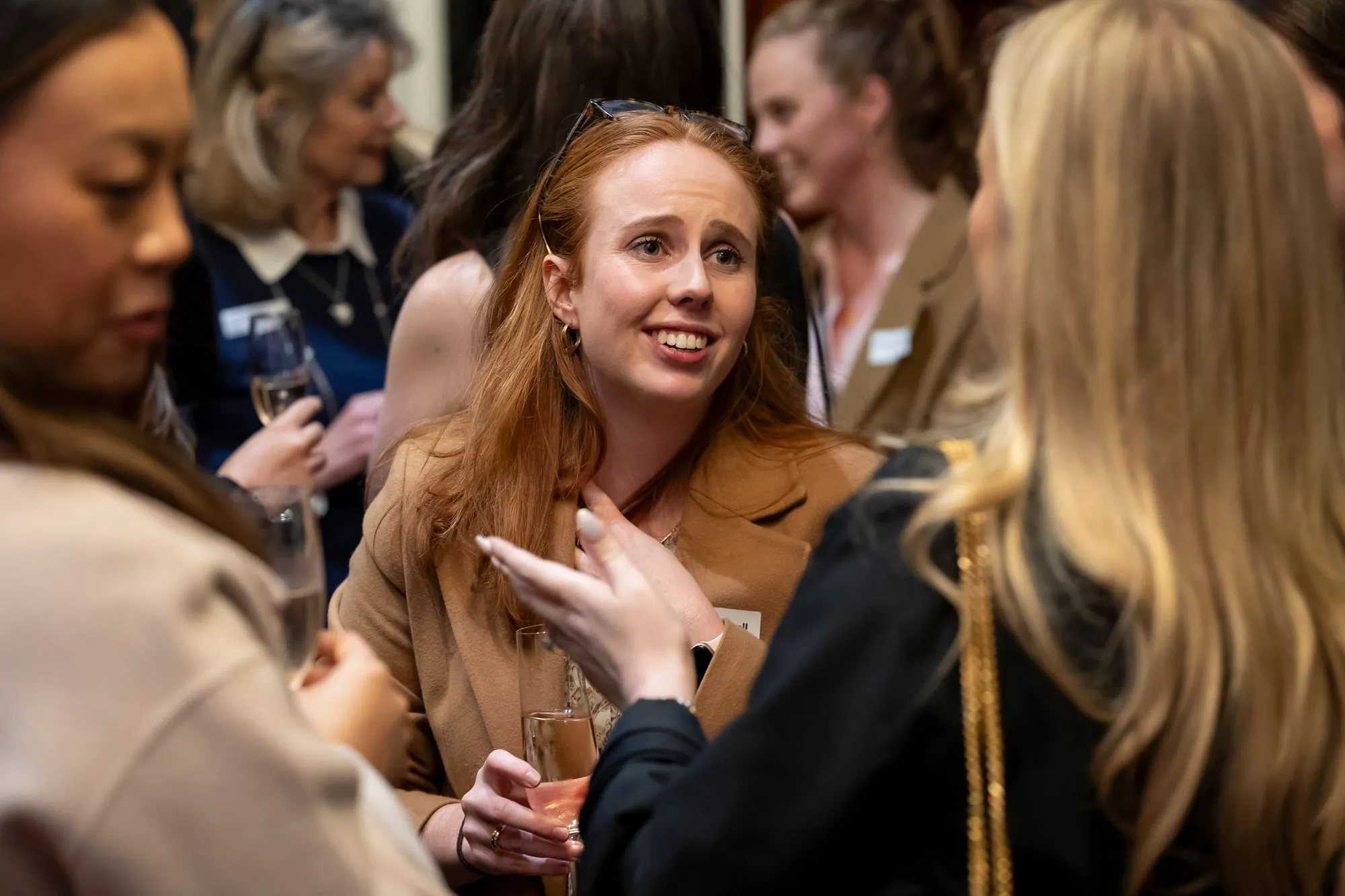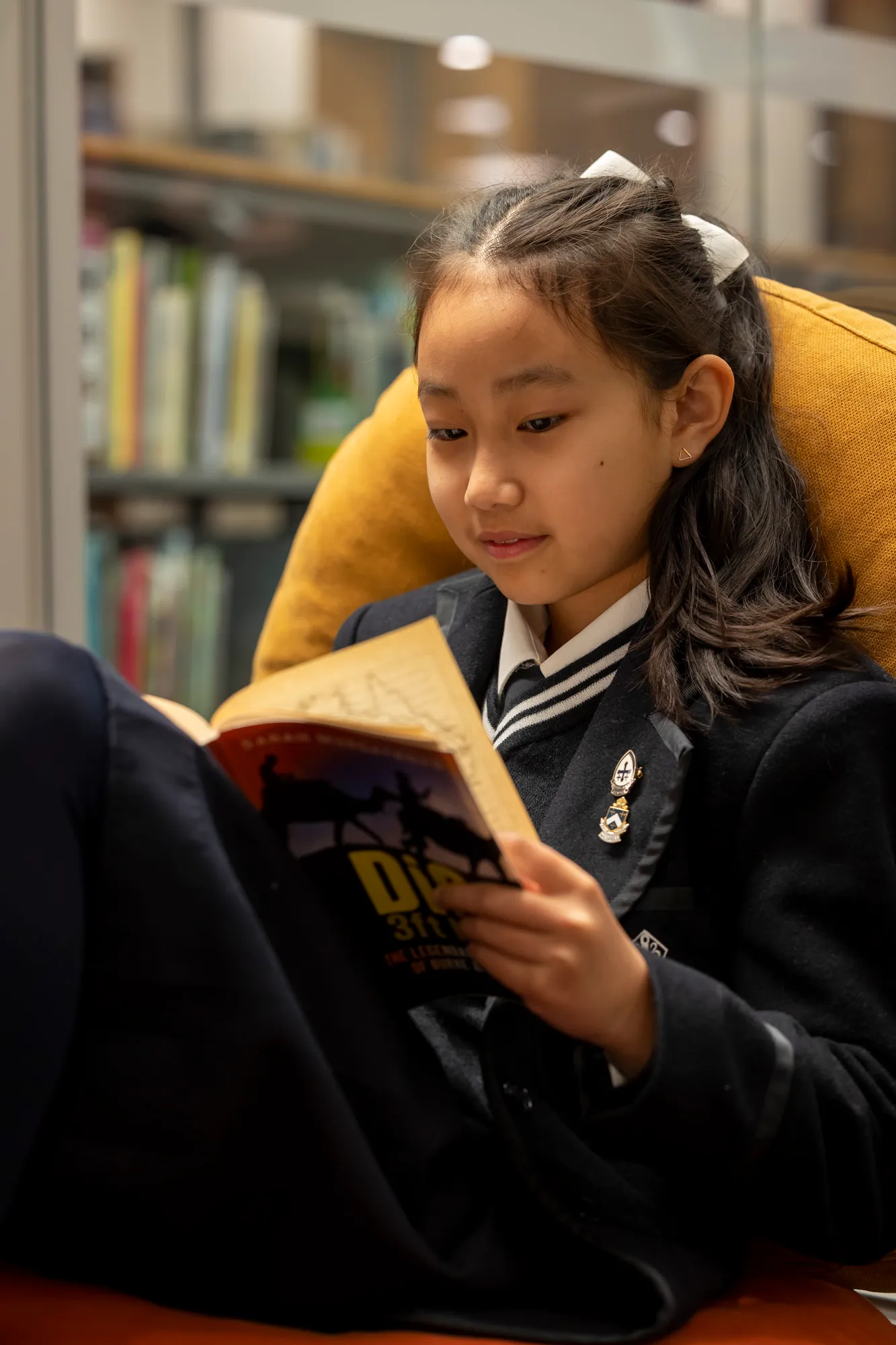

Year 7 Grammarian Shelly reads in the Nina Crone Library.


Year 7 Grammarian Shelly reads in the Nina Crone Library.
Unlocking Imagination
Reading is a kind of magic.
I do not mean in a metaphorical sense, but in a very literal sense. It is perhaps the quintessential magic of being human. We take arbitrary marks and, through learning and practice, we turn them into emotions, feelings, characters, lands, arguments and more.

The act of reading is not an innate one. While we acquire the ability to speak just through proximity and interaction with other speakers, reading is acquired through the teaching of phonics, and the recognition of common words and sound combinations. This process is complex and for some learners it can be arduous. However, the reward is the ability to perform the magic of conjuring worlds and people. We all know that when we read, we can be transported, we can lose time, we can fall in love. We move beyond the physical process of visual tracking and deciphering as our mind moves into a realm of imagining which can be every bit as real as our own world.
"Reading is a world ... rich with complexity and diversity; a world that helps us understand our humanness, and how to empathise with the experiences of others."
The act of reading is not an innate one. While we acquire the ability to speak just through proximity and interaction with other speakers, reading is acquired through the teaching of phonics, and the recognition of common words and sound combinations. This process is complex and for some learners it can be arduous. However, the reward is the ability to perform the magic of conjuring worlds and people. We all know that when we read, we can be transported, we can lose time, we can fall in love. We move beyond the physical process of visual tracking and deciphering as our mind moves into a realm of imagining which can be every bit as real as our own world.
"Reading is a world ... rich with complexity and diversity; a world that helps us understand our humanness, and how to empathise with the experiences of others."
The act of reading is not an innate one. While we acquire the ability to speak just through proximity and interaction with other speakers, reading is acquired through the teaching of phonics, and the recognition of common words and sound combinations. This process is complex and for some learners it can be arduous. However, the reward is the ability to perform the magic of conjuring worlds and people. We all know that when we read, we can be transported, we can lose time, we can fall in love. We move beyond the physical process of visual tracking and deciphering as our mind moves into a realm of imagining which can be every bit as real as our own world.
"Reading is a world ... rich with complexity and diversity; a world that helps us understand our humanness, and how to empathise with the experiences of others."

For children and adolescents, reading is a world outside the limited boundaries of their experience. It is a world rich with complexity and diversity; a world that helps us understand our humanness, and how to empathise with the experiences of others. To paraphrase E. M. Foster, reading also allows young people to go a little further down their particular path than they have yet to go themselves. Reading allows young people to practice adulthood within the safety of their imaginations, to experience falling in love before they are ready, to feel grief before it befalls them, or to repair complex friendships. Books are also fun, they explore the best and worst parts of ourselves; they can be funny, absurd, romantic and terrifying. Aristotle, in his defence of tragedy, argued that experiencing emotion through the arts allows for a purging of that emotion through catharsis. And while there is often something cathartic about reading, there is also often something edifying in a good read. We can leave a reading process feeling like a better person.
Beyond these experiences, reading has essential educational value. It broadens vocabulary, it models communication, encourages analysis, and helps students develop an understanding of syntax and expressions. Importantly, like ‘mini mental weights’, it builds concentration. By adolescence, reading is a more complex act, it demands an ability to infer meaning, to analyse intent and to critically engage with the purpose of texts. Intertextual references and cultural knowledge, which are often expanded through reading, further impact our ability to engage with a text, to make meaning of what is written and to refine our world view. In short, the more we read, the better we understand, the better we write, the better our critical analysis and cultural knowledge. Reading is a little pot of magical intellectual gold offering nothing but good.
"...the real issue is not time, it’s about whether reading is valued as an activity worth making time for. Across Australia 17% of teenagers report reading often, 44% report reading occasionally and 25% report not reading."
For children and adolescents, reading is a world outside the limited boundaries of their experience. It is a world rich with complexity and diversity; a world that helps us understand our humanness, and how to empathise with the experiences of others. To paraphrase E. M. Foster, reading also allows young people to go a little further down their particular path than they have yet to go themselves. Reading allows young people to practice adulthood within the safety of their imaginations, to experience falling in love before they are ready, to feel grief before it befalls them, or to repair complex friendships. Books are also fun, they explore the best and worst parts of ourselves; they can be funny, absurd, romantic and terrifying. Aristotle, in his defence of tragedy, argued that experiencing emotion through the arts allows for a purging of that emotion through catharsis. And while there is often something cathartic about reading, there is also often something edifying in a good read. We can leave a reading process feeling like a better person.
Beyond these experiences, reading has essential educational value. It broadens vocabulary, it models communication, encourages analysis, and helps students develop an understanding of syntax and expressions. Importantly, like ‘mini mental weights’, it builds concentration. By adolescence, reading is a more complex act, it demands an ability to infer meaning, to analyse intent and to critically engage with the purpose of texts. Intertextual references and cultural knowledge, which are often expanded through reading, further impact our ability to engage with a text, to make meaning of what is written and to refine our world view. In short, the more we read, the better we understand, the better we write, the better our critical analysis and cultural knowledge. Reading is a little pot of magical intellectual gold offering nothing but good.
"...the real issue is not time, it’s about whether reading is valued as an activity worth making time for. Across Australia 17% of teenagers report reading often, 44% report reading occasionally and 25% report not reading."
For children and adolescents, reading is a world outside the limited boundaries of their experience. It is a world rich with complexity and diversity; a world that helps us understand our humanness, and how to empathise with the experiences of others. To paraphrase E. M. Foster, reading also allows young people to go a little further down their particular path than they have yet to go themselves. Reading allows young people to practice adulthood within the safety of their imaginations, to experience falling in love before they are ready, to feel grief before it befalls them, or to repair complex friendships. Books are also fun, they explore the best and worst parts of ourselves; they can be funny, absurd, romantic and terrifying. Aristotle, in his defence of tragedy, argued that experiencing emotion through the arts allows for a purging of that emotion through catharsis. And while there is often something cathartic about reading, there is also often something edifying in a good read. We can leave a reading process feeling like a better person.
Beyond these experiences, reading has essential educational value. It broadens vocabulary, it models communication, encourages analysis, and helps students develop an understanding of syntax and expressions. Importantly, like ‘mini mental weights’, it builds concentration. By adolescence, reading is a more complex act, it demands an ability to infer meaning, to analyse intent and to critically engage with the purpose of texts. Intertextual references and cultural knowledge, which are often expanded through reading, further impact our ability to engage with a text, to make meaning of what is written and to refine our world view. In short, the more we read, the better we understand, the better we write, the better our critical analysis and cultural knowledge. Reading is a little pot of magical intellectual gold offering nothing but good.
"...the real issue is not time, it’s about whether reading is valued as an activity worth making time for. Across Australia 17% of teenagers report reading often, 44% report reading occasionally and 25% report not reading."
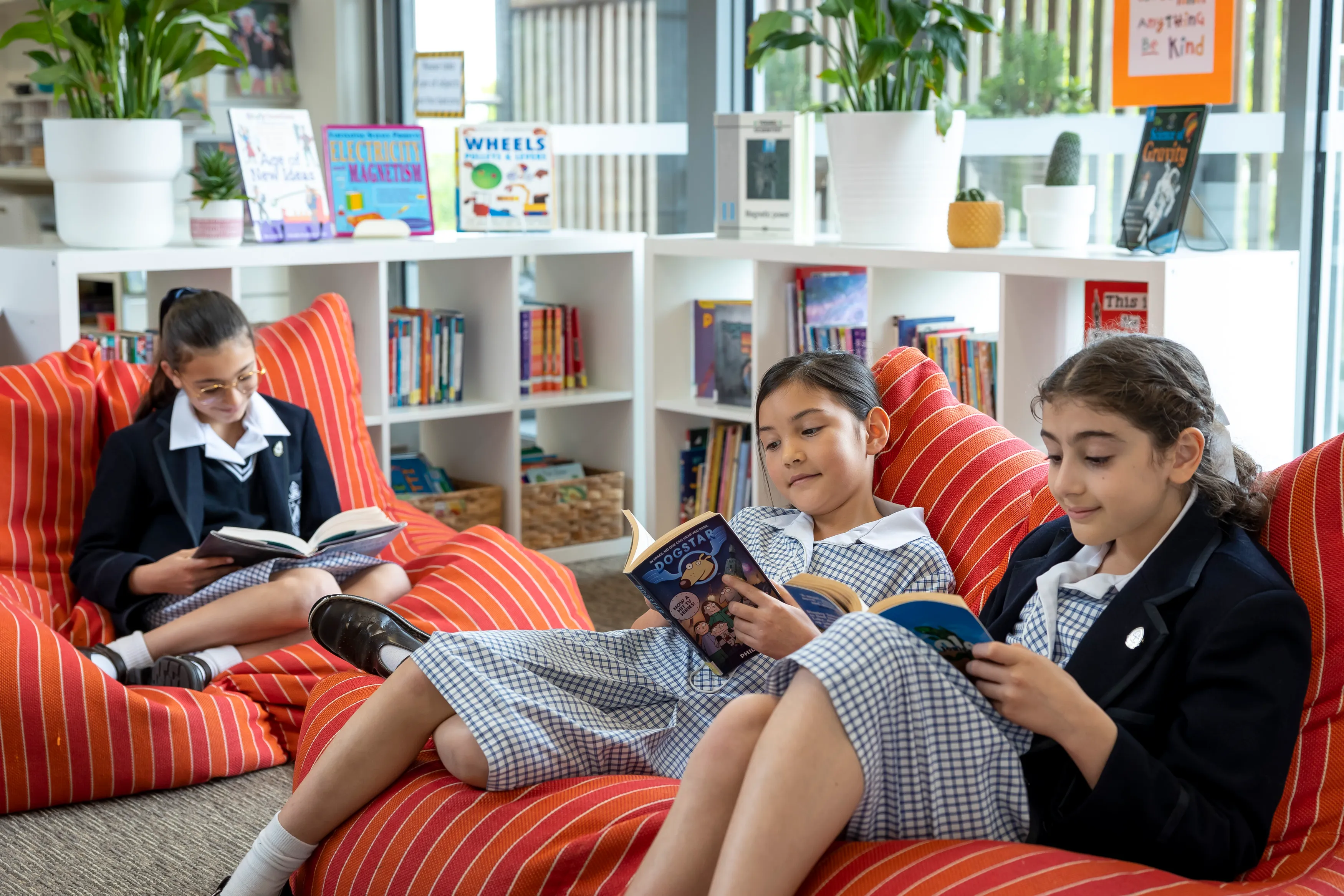

Morris Hall Grammarians enjoy some quiet reading time in the Library.



Morris Hall Grammarians enjoy some quiet reading time in the Library.
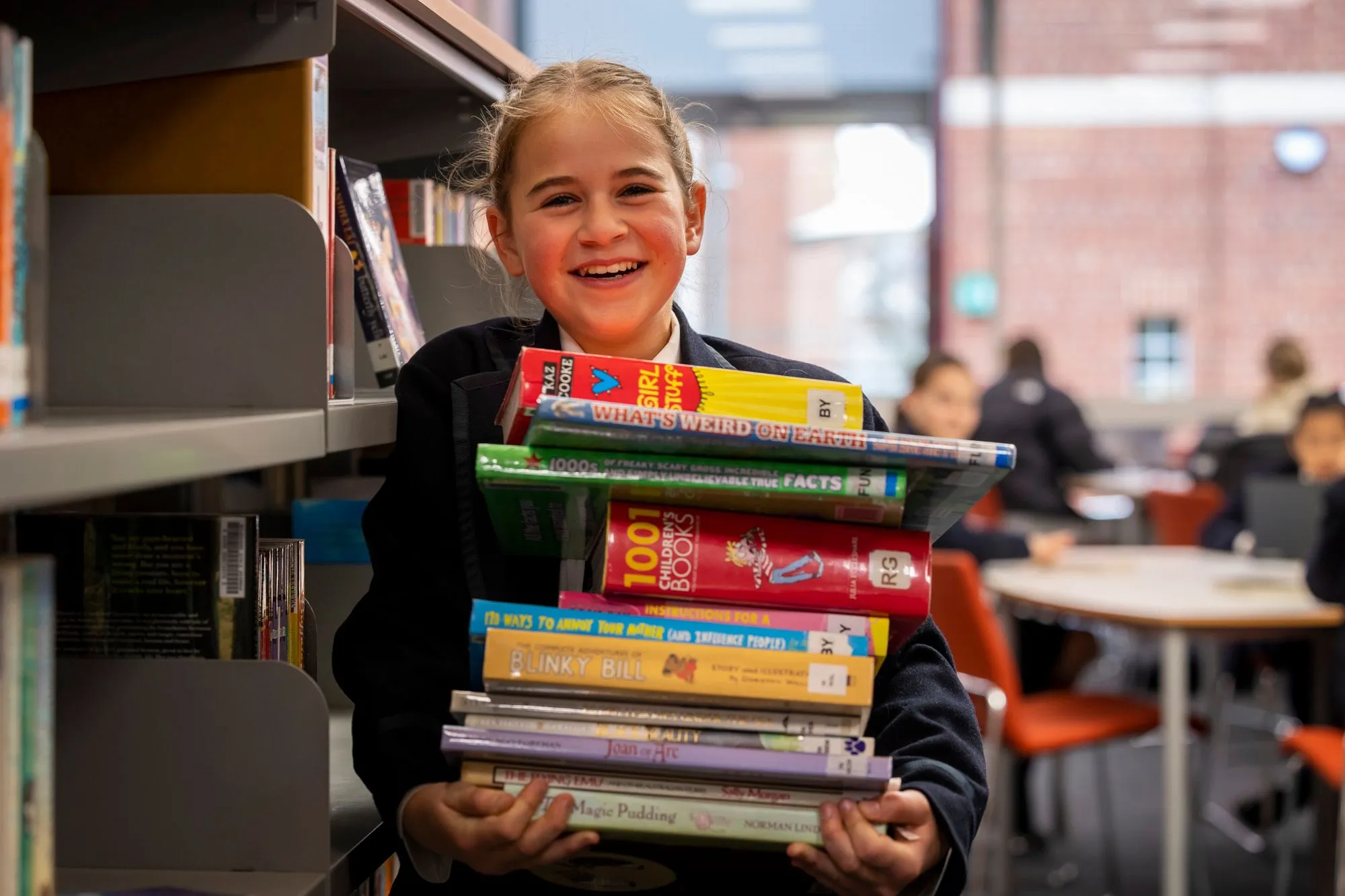

Winnie collects some books from the library for her holiday reading.
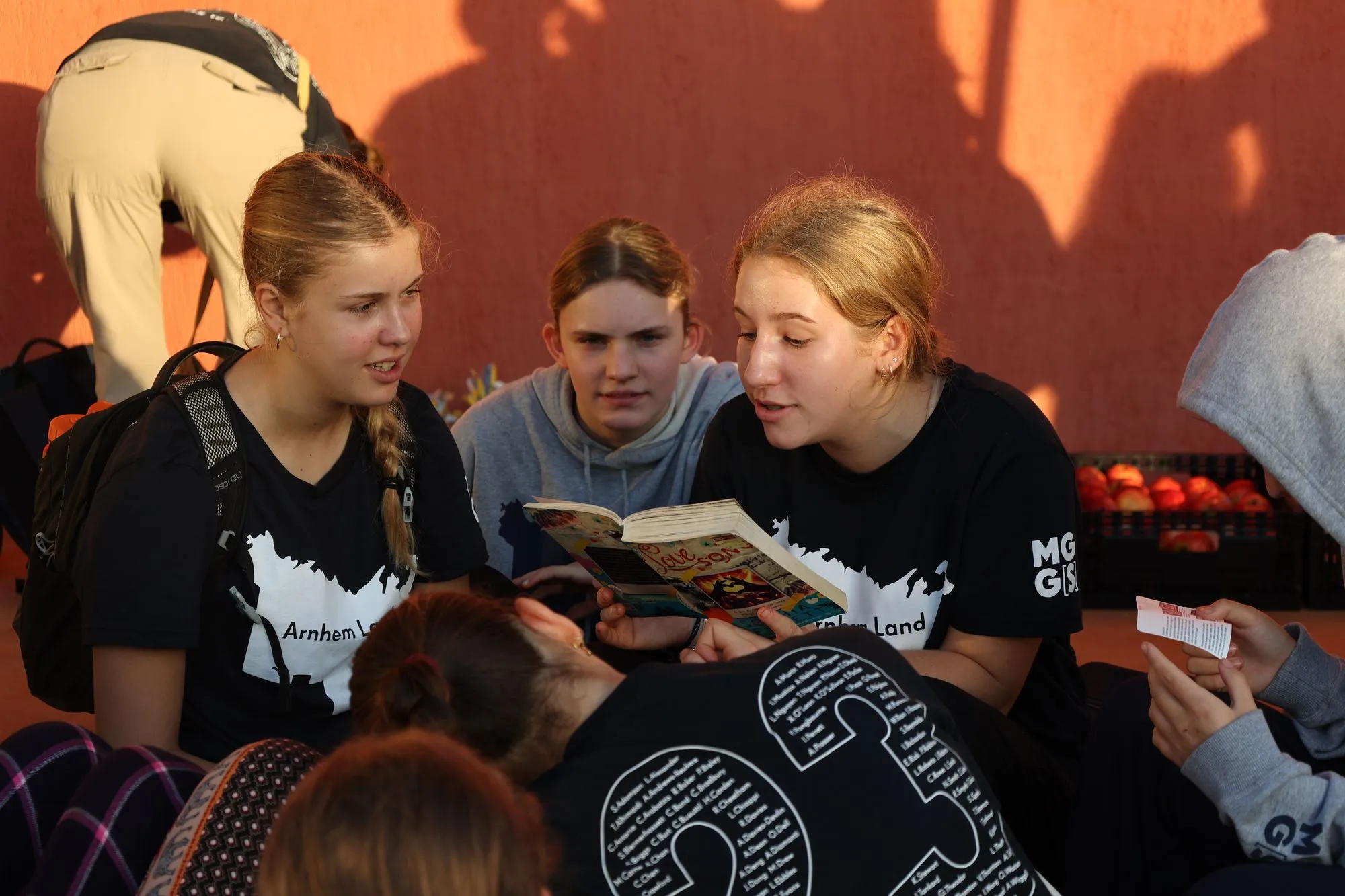

Year 9 students read together during their trip to Arnhem Land in 2023.
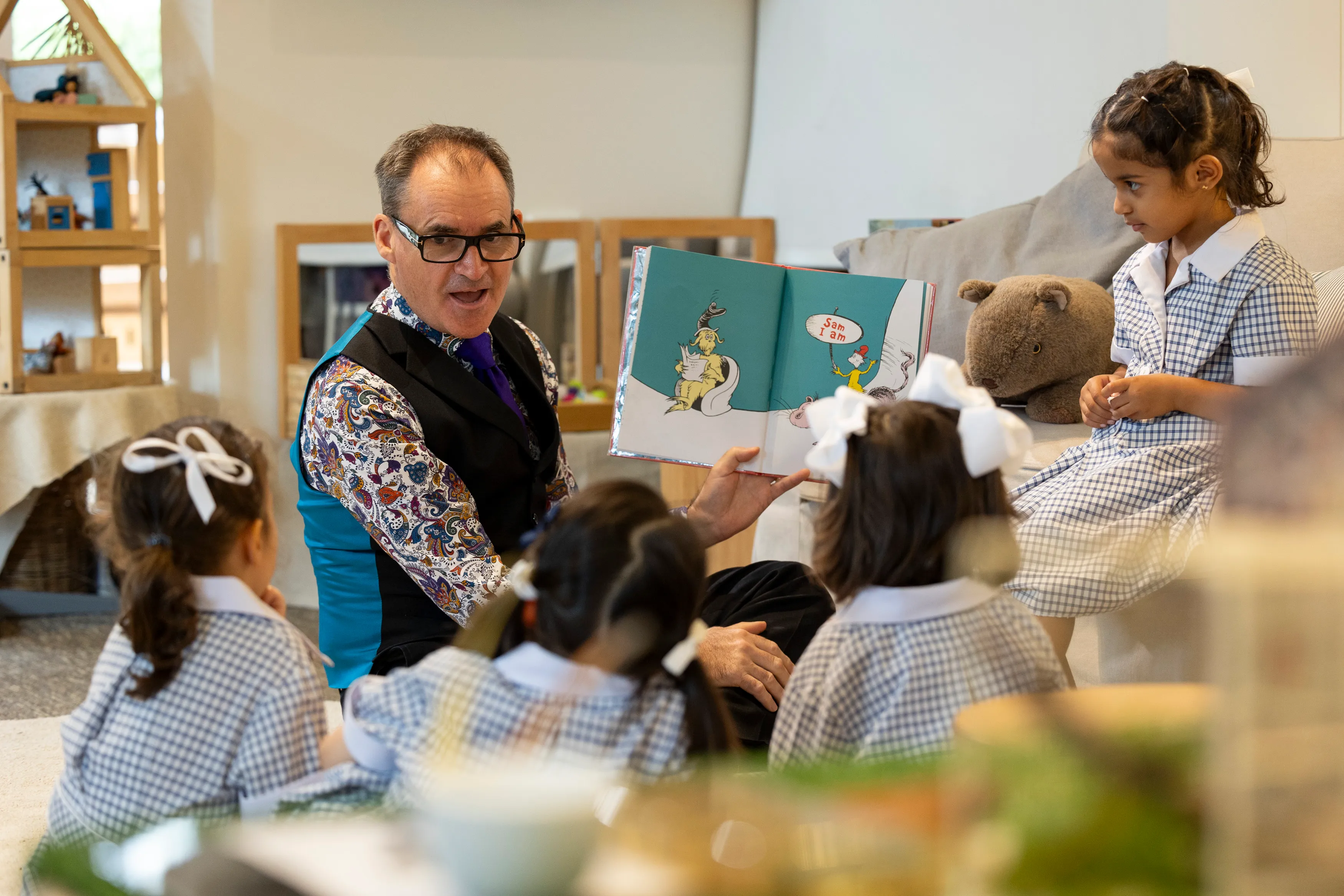

Mr Gavin Jones reads a story to our youngest Grammarians at the Early Learning Centre.

So why don’t our teenagers read with the same voracity they did when they were little? In her research into teenager reading habits, Deakin University Research Fellow, Dr Bronwyn Reddan, has found five barriers that impact teenage reading habits – time, identity, attention, motivation and supply. There is an increase in co-curricular activity for teenagers including homework, jobs and sport. As part of their very normal development, social interactions and friendships become more important, and more time consuming. And as we all know, technology impacts attention and motivation, affecting concentration through systems of frequent distractions and rewards. Yet Dr Reddan argues that “when you put all of this evidence together, the real issue is not time, it’s about whether reading is valued as an activity worth making time for.” Across Australia 17% of teenagers report reading often, 44% report reading occasionally and 25% report not reading. Such difference in reading creates an exponential difference in the reading proficiency of older teens and adults and this difference is often evident in the grades of students.
"At MGGS we are working hard to encourage a culture of reading, where all Grammarians read often and identify themselves as readers."
This involves capturing their attention and improving their motivation, and low stakes, enjoyable reading is essential to motivation. In the first year of what I like to call ‘Operation Make Reading Cool’ (Yes, I recognise the title is inherently uncool) we introduced student book reviews to our assemblies, and we have found that when a student stands up and makes a recommendation to our student body, there is an increase in the borrowing of that book. Likewise, when the actress Angourie Rice came to talk to Year 8 about her new novel, nearly 75% of the students bought the book. Reading has now become part of our House Cup competition, with fierce participation in the first year. We are encouraging a culture of literary criticism, where students can voice their critique of the value of a text. So, as you may have guessed we are developing a very visible and accessible culture of reading for all students, through interesting writers and interesting readers.
So why don’t our teenagers read with the same voracity they did when they were little? In her research into teenager reading habits, Deakin University Research Fellow, Dr Bronwyn Reddan, has found five barriers that impact teenage reading habits – time, identity, attention, motivation and supply. There is an increase in co-curricular activity for teenagers including homework, jobs and sport. As part of their very normal development, social interactions and friendships become more important, and more time consuming. And as we all know, technology impacts attention and motivation, affecting concentration through systems of frequent distractions and rewards. Yet Dr Reddan argues that “when you put all of this evidence together, the real issue is not time, it’s about whether reading is valued as an activity worth making time for.” Across Australia 17% of teenagers report reading often, 44% report reading occasionally and 25% report not reading. Such difference in reading creates an exponential difference in the reading proficiency of older teens and adults and this difference is often evident in the grades of students.
"At MGGS we are working hard to encourage a culture of reading, where all Grammarians read often and identify themselves as readers."
This involves capturing their attention and improving their motivation, and low stakes, enjoyable reading is essential to motivation. In the first year of what I like to call ‘Operation Make Reading Cool’ (Yes, I recognise the title is inherently uncool) we introduced student book reviews to our assemblies, and we have found that when a student stands up and makes a recommendation to our student body, there is an increase in the borrowing of that book. Likewise, when the actress Angourie Rice came to talk to Year 8 about her new novel, nearly 75% of the students bought the book. Reading has now become part of our House Cup competition, with fierce participation in the first year. We are encouraging a culture of literary criticism, where students can voice their critique of the value of a text. So, as you may have guessed we are developing a very visible and accessible culture of reading for all students, through interesting writers and interesting readers.


Saskia relaxes with a book in the Boarding House.



Saskia relaxes with a book in the Boarding House.


Saskia relaxes with a book in the Boarding House.

In the classroom, a culture of reading is a little more nuanced; valuing reading is not sufficient, we must give the students the proficiency and confidence to become avid readers. To read well in Senior Years, one needs strong decoding skills, comprehension skills and inferential skills. At MGGS, we take a multifaced approach, we are increasing comprehension exercises, creating opportunities for low stakes reading practice, scaffolded reading and introducing a range of text types, including archaic and academic readings earlier in their education. We are encouraging them to ‘read around their ignorance’, to push through challenging texts, and to not avoid, but research new words. We have adapted our text selection to our students’ interests and needs, and we are encouraging more student involvement in text selection for class and reading circles. In addition, we have re-introduced ‘Drum’ reading sessions in the Nina Crone Library with Mr Gavin Jones for Years 9 and 10. However, the physical act of reading is only one part of reading well. Access to audiobooks, classroom reading sessions and class read texts help our Grammarians collectively engage in texts. Once they start identifying with texts both individually and collectively, the uptake of reading becomes much stronger.
Reading sessions in the 'Drum' of the Nina Crone Library with Mr Gavin Jones are a unique element of our English curriculum.
MGGS values reading, we have a relationship with the Stella Literary Prize, and we sponsor the Melbourne Writers Festival, we have writers visit our school, and books are the most common prize awarded. An intricate web of supports and celebrations are in place to encourage our Grammarians to read. While there is no golden solution to declining reading rates in teenagers, confidence, skill, visibility, agency and reading identity remain the focus of our reading program. Yet one thread of the web that is perhaps the most important, is the value we as a school and a community place on celebrating the reading of others, whether that be an esoteric manga series, a romance novel or a canonised classic. I encourage you all to talk about the books you read, to send people longform journalism and to celebrate the distinctly human magic of reading.
In the classroom, a culture of reading is a little more nuanced; valuing reading is not sufficient, we must give the students the proficiency and confidence to become avid readers. To read well in Senior Years, one needs strong decoding skills, comprehension skills and inferential skills. At MGGS, we take a multifaced approach, we are increasing comprehension exercises, creating opportunities for low stakes reading practice, scaffolded reading and introducing a range of text types, including archaic and academic readings earlier in their education. We are encouraging them to ‘read around their ignorance’, to push through challenging texts, and to not avoid, but research new words. We have adapted our text selection to our students’ interests and needs, and we are encouraging more student involvement in text selection for class and reading circles. In addition, we have re-introduced ‘Drum’ reading sessions in the Nina Crone Library with Mr Gavin Jones for Years 9 and 10. However, the physical act of reading is only one part of reading well. Access to audiobooks, classroom reading sessions and class read texts help our Grammarians collectively engage in texts. Once they start identifying with texts both individually and collectively, the uptake of reading becomes much stronger.
Reading sessions in the 'Drum' of the Nina Crone Library with Mr Gavin Jones are a unique element of our English curriculum.
MGGS values reading, we have a relationship with the Stella Literary Prize, and we sponsor the Melbourne Writers Festival, we have writers visit our school, and books are the most common prize awarded. An intricate web of supports and celebrations are in place to encourage our Grammarians to read. While there is no golden solution to declining reading rates in teenagers, confidence, skill, visibility, agency and reading identity remain the focus of our reading program. Yet one thread of the web that is perhaps the most important, is the value we as a school and a community place on celebrating the reading of others, whether that be an esoteric manga series, a romance novel or a canonised classic. I encourage you all to talk about the books you read, to send people longform journalism and to celebrate the distinctly human magic of reading.
In the classroom, a culture of reading is a little more nuanced; valuing reading is not sufficient, we must give the students the proficiency and confidence to become avid readers. To read well in Senior Years, one needs strong decoding skills, comprehension skills and inferential skills. At MGGS, we take a multifaced approach, we are increasing comprehension exercises, creating opportunities for low stakes reading practice, scaffolded reading and introducing a range of text types, including archaic and academic readings earlier in their education. We are encouraging them to ‘read around their ignorance’, to push through challenging texts, and to not avoid, but research new words. We have adapted our text selection to our students’ interests and needs, and we are encouraging more student involvement in text selection for class and reading circles. In addition, we have re-introduced ‘Drum’ reading sessions in the Nina Crone Library with Mr Gavin Jones for Years 9 and 10. However, the physical act of reading is only one part of reading well. Access to audiobooks, classroom reading sessions and class read texts help our Grammarians collectively engage in texts. Once they start identifying with texts both individually and collectively, the uptake of reading becomes much stronger.
Reading sessions in the 'Drum' of the Nina Crone Library with Mr Gavin Jones are a unique element of our English curriculum.
MGGS values reading, we have a relationship with the Stella Literary Prize, and we sponsor the Melbourne Writers Festival, we have writers visit our school, and books are the most common prize awarded. An intricate web of supports and celebrations are in place to encourage our Grammarians to read. While there is no golden solution to declining reading rates in teenagers, confidence, skill, visibility, agency and reading identity remain the focus of our reading program. Yet one thread of the web that is perhaps the most important, is the value we as a school and a community place on celebrating the reading of others, whether that be an esoteric manga series, a romance novel or a canonised classic. I encourage you all to talk about the books you read, to send people longform journalism and to celebrate the distinctly human magic of reading.







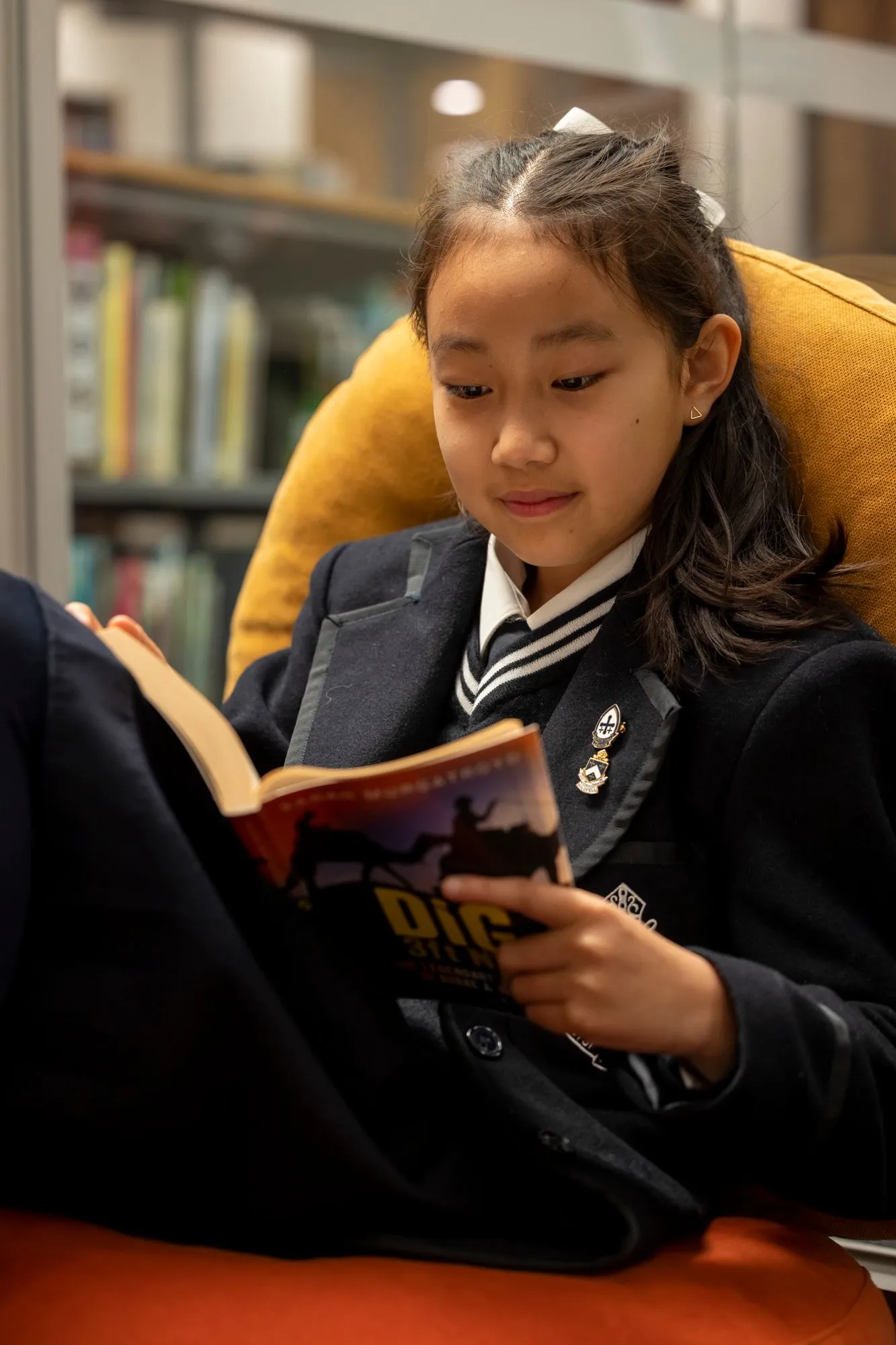






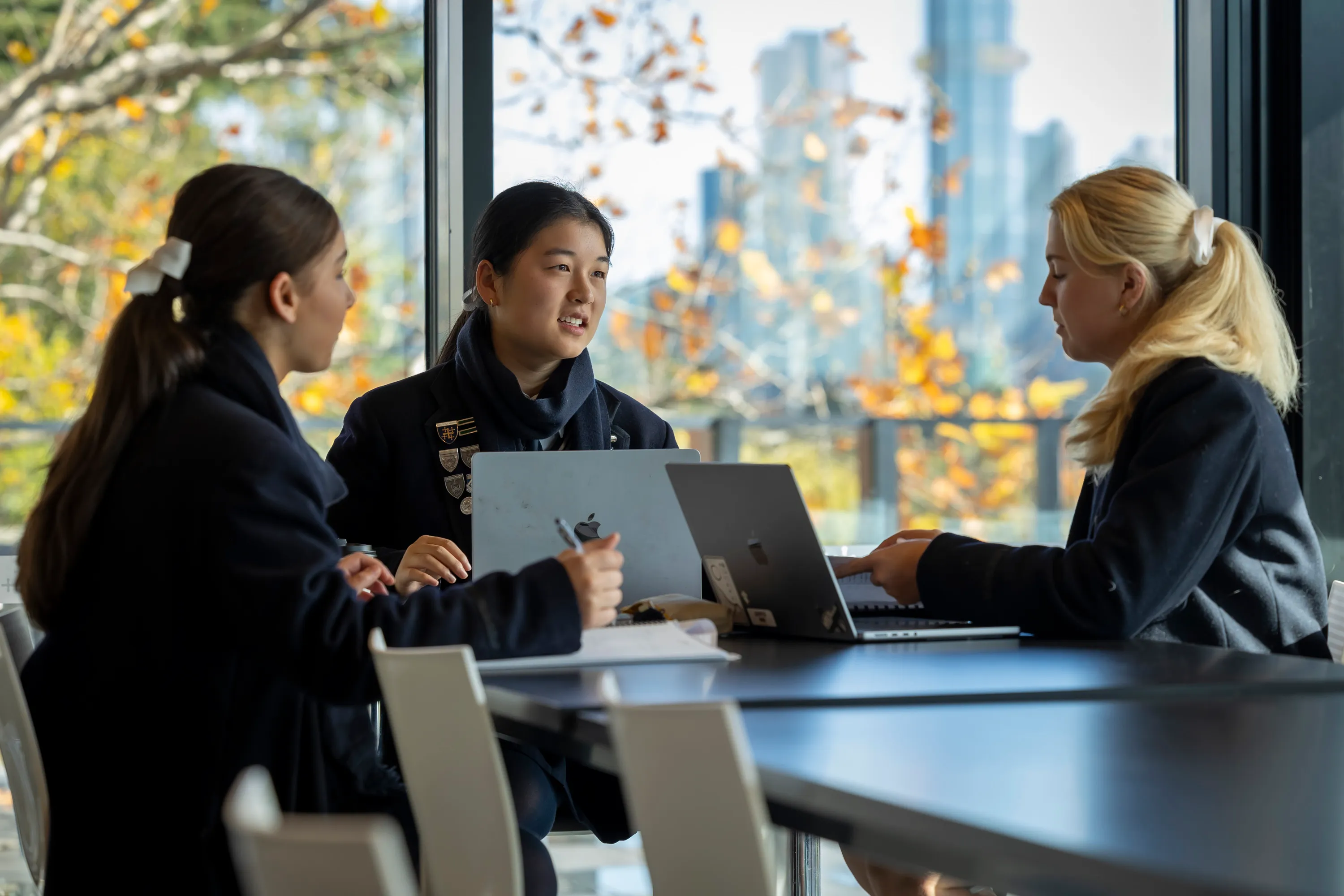


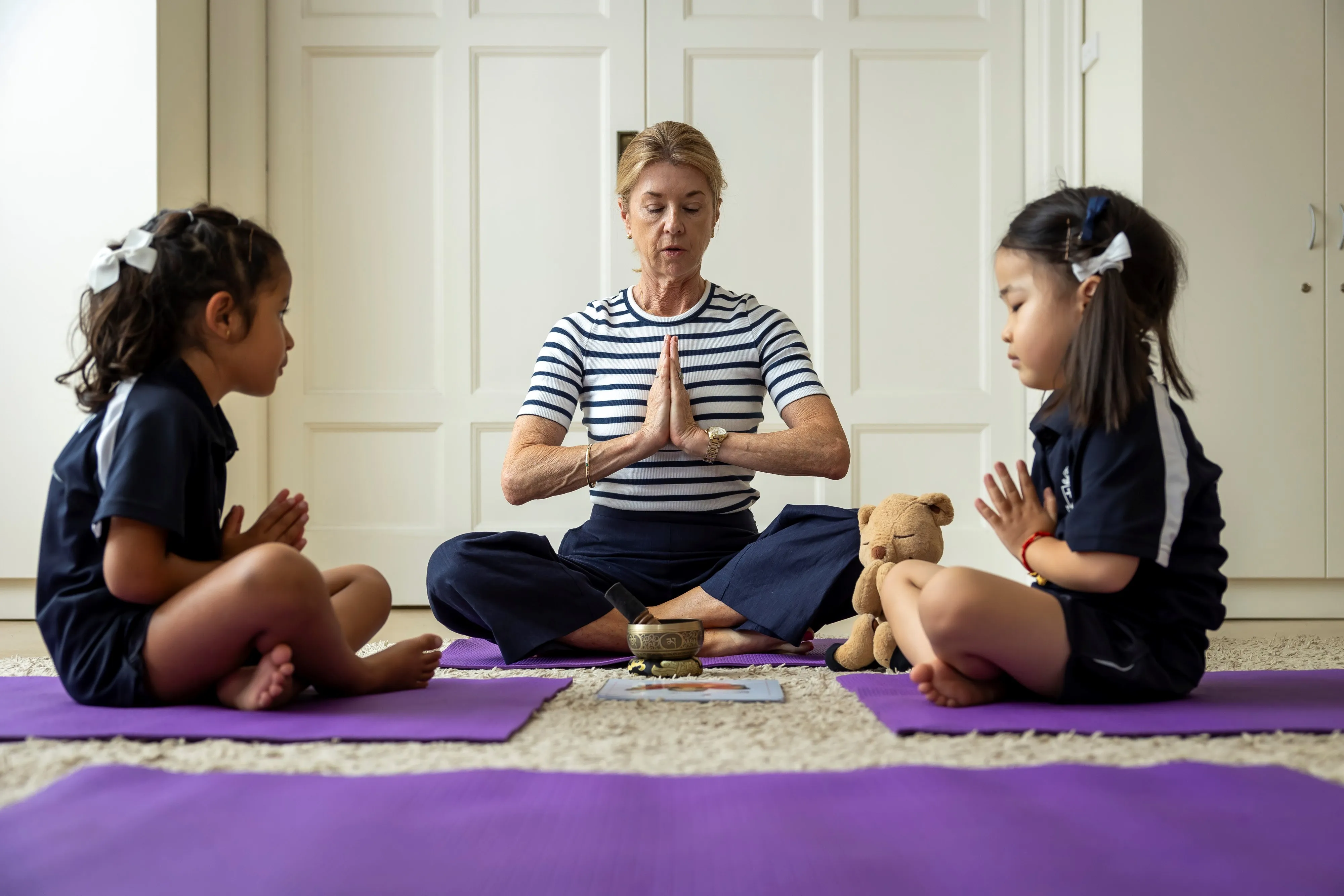
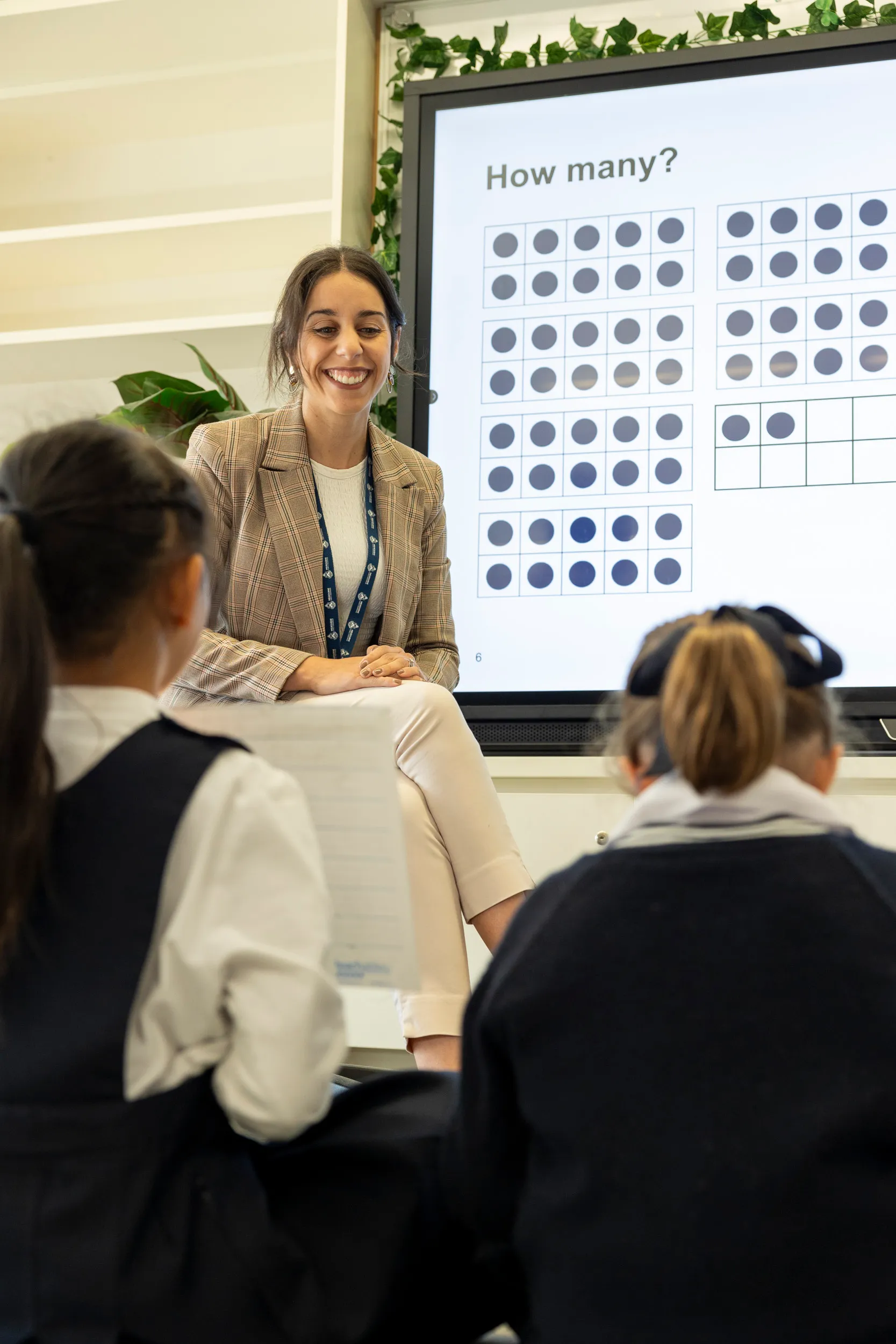
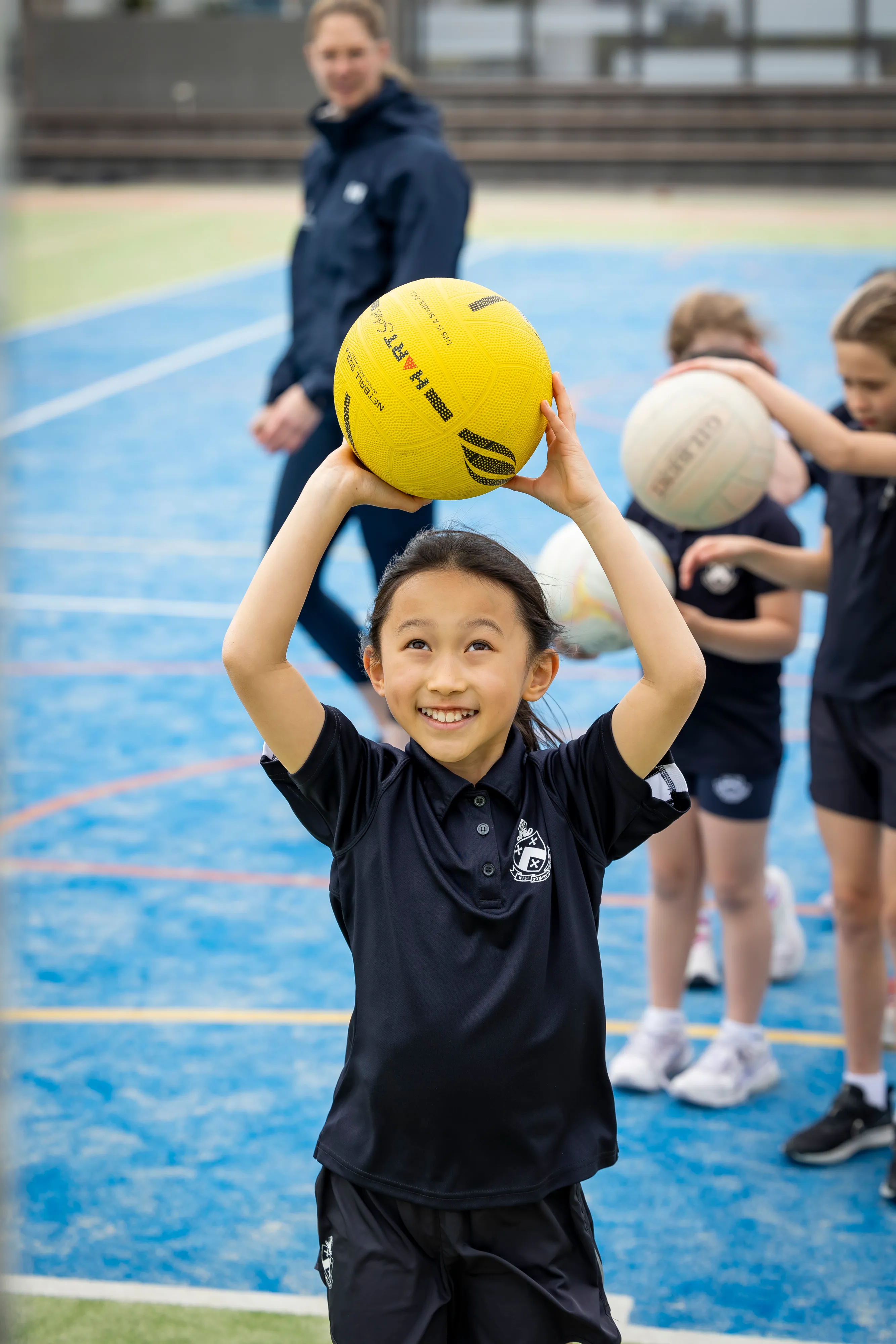
.jpg)
